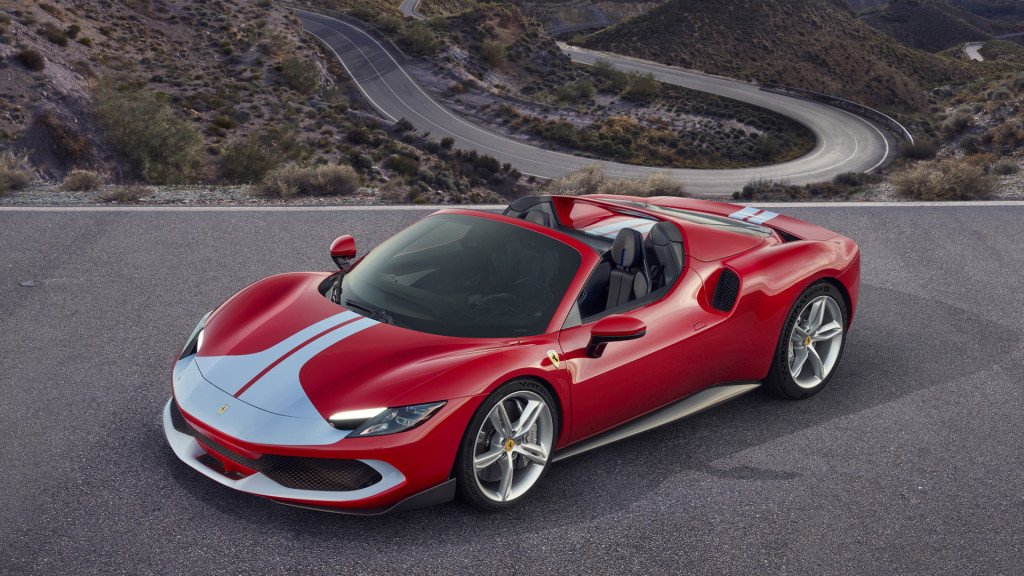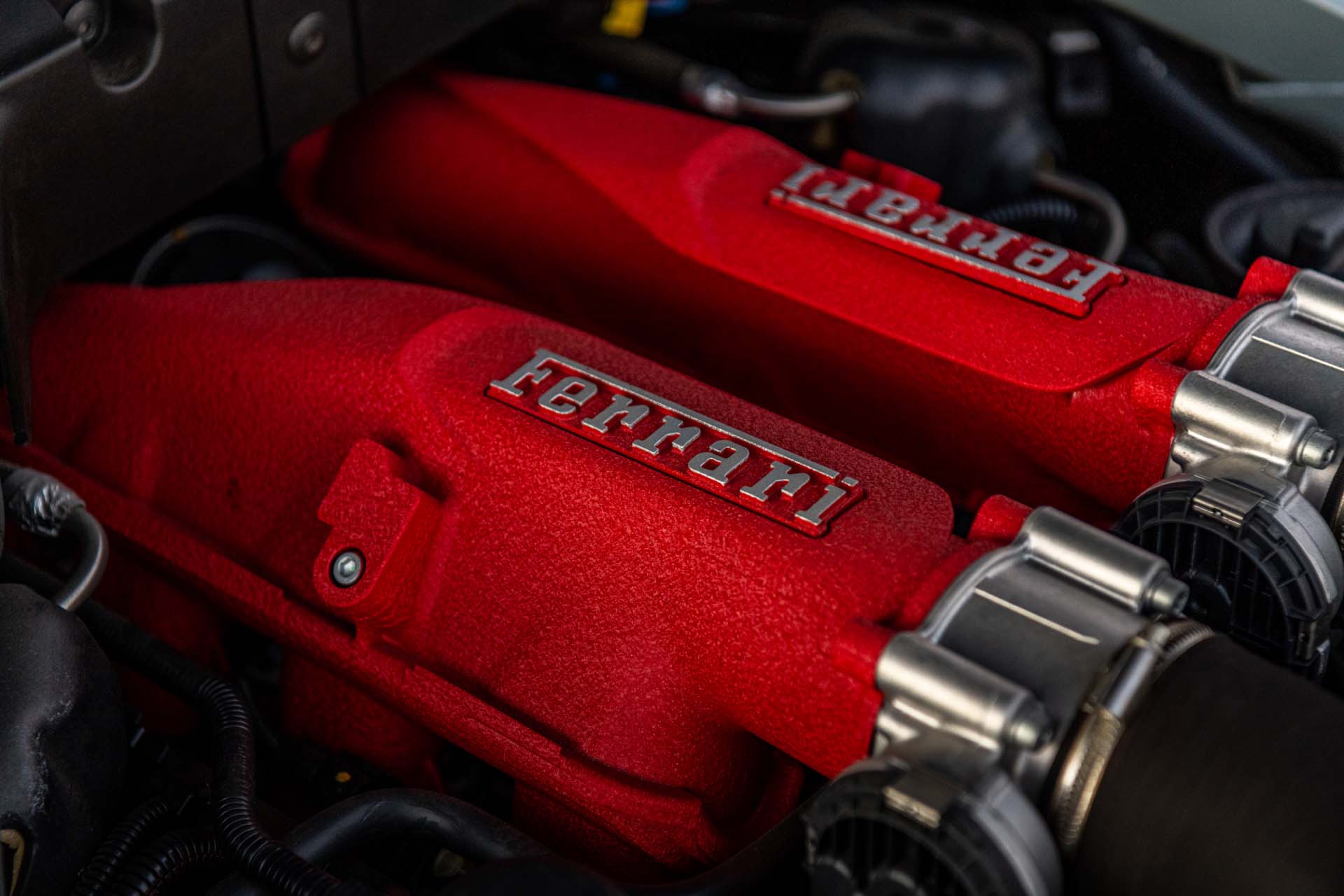Ferrari has filed a patent application for a hydrogen-powered internal-combustion engine, hinting that the automaker is considering this as a way to keep combustion engines alive in a future with stricter emissions regulations.
Unlike hydrogen fuel cells, which generate electricity that is then used to power motors, hydrogen combustion engines simply burn hydrogen instead of gasoline in a process that emits no carbon dioxide. It’s not a new idea—BMW built a hydrogen-powered 7-Series in the early 2000s—but this is the first time Ferrari has publicly expressed interest in it. The automaker sees hydrogen combustion as a way to drastically reduce emissions.
A hydrogen engine would generate no greenhouse gases and minimal amounts of other pollutants like carbon monoxide and particulates, Ferrari claims in the patent application, which was published by the United States Patent and Trademark Office (USPTO) on Feb. 29 but filed by Ferrari in 2023.
Minimal emissions is not the same as zero emissions, however, and there’s some concern about the overall carbon footprint of hydrogen production. While hydrogen generated through electrolysis, with electricity from renewable sources, has low overall emissions, other production methods using fossil fuels could be as dirty as coal, the non-profit Rocky Mountain Institute said in 2022.

Ferrari 296 GTS Assetto Fiorano
Hydrogen also isn’t as energy-dense as gasoline, so it requires a larger volume of onboard storage to deliver equivalent range to a gasoline car. Ferrari admits in the patent application that a car with a hydrogen-combustion engine will be “longer and heavier (for the same range) than a similar car equipped with a petrol-powered internal-combustion engine.”
Quick refueling times might mitigate any range deficit, but internal-combustion cars burning hydrogen would face the same infrastructure issues as fuel-cell vehicles. As a recent InsideEVs report notes, the limited hydrogen infrastructure has proven unreliable, frustrating owners of the Toyota Mirai fuel-cell vehicle.
Toyota is also exploring hydrogen combustion engines—and not just in the form of patent filings. In partnership with Yamaha, the automaker fielded a hydrogen-powered Corolla race car in 2021 and showed a hydrogen-powered V-8 based on the engine used in the Lexus RC F in 2022.
It’s unclear if Ferrari will do anything similar with hydrogen combustion. But with Porsche investing in synthetic fuels as a way to keep internal-combustion engines around while addressing climate-change concerns, perhaps hydrogen will be Ferrari’s technology of choice for meeting that goal.
